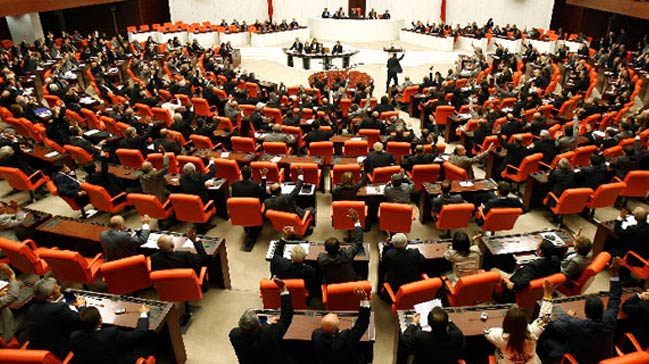Etyen Mahçupyan
The Turkish original of this article was published as
Başkanlık bizi krizden çıkarmaz mıydı? on 31st December 2015.
With the November elections, the opposition appears to have been shattered both organizationally (on an institutional plane) and psychologically (among intellectual circles). Combined with the AKP’s tendency to become a party of the “centre,” this means that society will be left “face to face” with the government in the years to come. In other words, with regard to the changes and reforms the government wants to implement, relations with the opposition are significant only because they are technically necessary, for example, to secure the minimum number of votes to take the new constitution to a referendum.
But the AKP also has a mission of formulating a policy for the future that is capable of appealing to the public imagination, and here the party and the public will be coming face to face without any intermediaries whatsoever.
The presidential system debate becomes meaningful within this context, and indeed stands a chance of being attained only if it is addressed in this context. The June 2015 elections served as a reminder that at least a fourth of the AKP’s electorate represents a group that is going to be hard to persuade to accept mediocrity. It is not difficult to guess that with a continuing rise in income, urbanization and education levels, this high sensitivity about standards will also increase in time. Hence AKP members and supporters face a simple equation: If you want a transition to a presidential system, you first have to convince an AKP electorate that has such high democratic norms.
And this is not something that can done with “saving the goods from a fire” tactics based on making use of the current crisis. In other words, it would be nothing but self-deception to believe that the public can be made to accept the transition to a presidential system on the pretext of this or that current difficulty. For example, it may not be very smart to argue that Syria’s chaotic state or Russia’s aggressiveness necessitates a “wise” or “sagacious” governance, and that this, in turn, can be achieved (only) through a presidential system which highlights the will of a single person. For first, the dominance of a single person’s will is not what a presidential system is all about, and second, there is no guarantee that a single person’s will can result in such “wise” governance. If, for example, the lower echelons have trouble grasping what this will really wants, this is inevitably going to impact on implementation, and an immensely “unwise” state may well be the outcome. Moreover, even if such wisdom were to be attained, and the entire state mechanism were to be unquestioningly united under that single person’s will, a critical question would still remain: What guarantees that the decisions taken within the ambit of this will are going to be good and correct decisions? No decision said to be “correct” is so in an absolutely objective way. What makes them “correct” is that they are adequately filtered by society, by the public, to render them “correct for us.” This, in turn, necessitates the creation of a social/institutional will that goes way beyond any single individual’s limits, and has to do with the “mentality” rather than the “system” of government.
But there is yet another and very fundamental problem with such arguments. If you justify the presidential system by reference to a current problem or crisis, this will give rise to the perception that you are always in need of some kind of crisis. This, of course, is exactly the AKP opponents’ argument. If, therefore, a presidential system is to be promoted, its legitimacy should be sought not in crises, but on the contrary, in normal times. A presidential system must be embraced not because it will help cross a “threshold,” but because it is a governmental system that will enable Turkey to achieve long-term success in the postmodern global system. This is possible only through a perspective that focuses not on the “president” but directly on the citizens’ role in decision-making processes. Those who reduce the presidential system to the “president” are actually planting the seeds for a possible rejection of this system, though they don’t seem to be aware of what they are doing.


